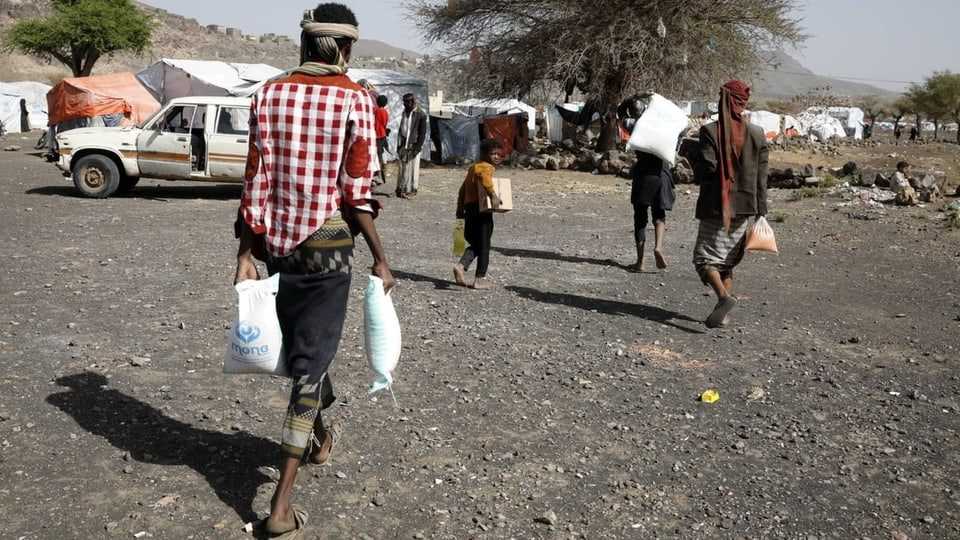During the fasting month of Ramadan, arms fell silent in Yemen. That gave people some peace of mind, and aid organizations could reach them better. But can the country in which, according to the UN, the greatest humanitarian catastrophe in the world is taking place, now hope for peace? Mareike Transfeld from the Yemen Policy Center sees a glimmer of hope.
SRF News: Ramadan is over, the ceasefire should continue for another month. What are the chances that this will succeed?
Mareike Transfeld: There are a few points that suggest, or at least make one optimistic, that this ceasefire could continue. Especially since the parties to the conflict are talking about confidence-building measures. But there are also factors that speak against it. And so it could also be possible that at the end of this ceasefire, violence will start again.
In Yemen, government troops have been fighting Iran-backed Houthi rebels with the help of Saudi Arabia for the past seven years. What was achieved during this ceasefire?
Thanks to the ceasefire, an oil tanker was able to dock in the port of al-Hudaidah, allowing much-needed oil to be delivered to Houthi territory. There is also talk of opening the airport in Sanaa, which has been closed to commercial flights for years. Opening up is a Houthi demand. In addition, prisoners have been released on both sides and the UN special envoy has traveled to Sana’a to talk to the Houthis.

Legend:
Economic reconstruction is needed, says Mareike Transfeld. “This recovery would allow people to get off humanitarian aid and go back to work to care for their families.”
key stone
Officially, this ceasefire is seen as a success, at least there are talks. What does it take for a lasting peace?
More confidence-building measures are needed. In particular, the Houthis must signal that they are serious about taking part in talks and implementing the results of those talks. It is also important that the Houthis can gain more from these talks than through military means.
Economic recovery is needed that will allow people to get off humanitarian aid and go back to work.
Currently, the bigger signals are coming from the Saudi side and the side of the internationally recognized government. In addition, it would be important for political and state institutions to function in order to be able to actually implement the results of the negotiations.
What are the chances that there is actually peace in Yemen?
We are currently in a preliminary phase of negotiations. If we pass these successfully, it could be that there will be peace negotiations. Saudi Arabia has already indicated that it is interested. There are also clear steps on the part of the Yemeni government: the establishment of a new Presidential Council, which has signaled that the military route has not been successful. This shows that this site wants to break new ground. This can be built upon even if the ceasefire were to be broken now.
Do you think Yemen can turn to a different path?
We are not at a point where we will see peace very soon. There is still much that the conflicting parties have to discuss. And even if an agreement is reached between the Houthis and the Saudis and the government, there are still many issues that need to be addressed. For example, there are many non-state armed groups that engage in violence. But we are now in a new phase, and that certainly gives cause for optimism.
The conversation was conducted by Sandro Della Torre.
